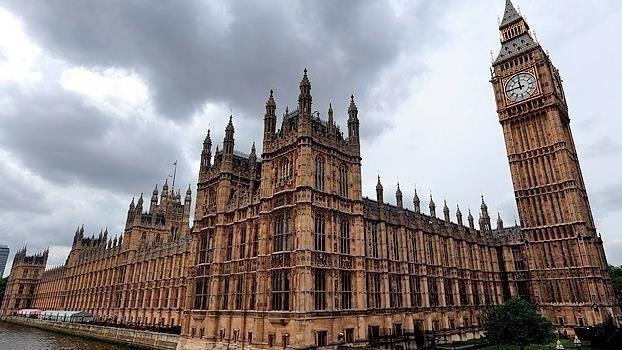UK economy’s April contraction fuels expectations of rate cut in August
Economists say 0.3% decline likely won’t prompt immediate action, but cuts are possible later in the year

LONDON
The UK economy contracted by 0.3% in April, prompting economists to revise their expectations for interest rate cuts, now seen as more likely in August or November rather than at next week’s Bank of England (BoE) meeting.
According to the UK’s Office for National Statistics, one of the major drivers of the contraction was a record decline in exports to the US.
The BoE is widely expected to keep its policy rate unchanged at its meeting next week, but the odds of a rate cut in August have increased.
Raj Badiani, economics director for S&P Global Market Intelligence, said in a note that the BoE is expecting a low growth rate for the second quarter of the year, and the bank is expected to keep its policy rate unchanged at 2.45% next week while lowering it to 3.75% after gradual reductions in August and November.
Paul Dales, chief UK economist at Capital Economics, stated that the UK’s most recent growth data is unsustainable, yet it will not push the BoE to cut rates next week, “but it is one more piece of news pointing to another cut in August.”
Sanjay Raja, chief UK economist at Deutsche Bank, said in a note that the UK’s gross domestic product (GDP) was “always on a collision course for a course direction after a super strong start to the year.”
“The question was really when? April GDP surprised to the downside. We expected the economy to flatline—instead, the economy shrank 0.3% month-on-month,” he said.
Raja stated that the contraction was due to weak manufacturing and a slowdown in the service sector. Manufacturing decline was due to “weak auto production, machinery, and chemicals,” while in the service sector, there was a “big drop in car sales (due to changes in VED), information and communication activities, professional services (mainly legal services), and leisure activities.”
He noted that these negative developments in April will ease in the coming months, but they will not “dissipate fully.”
“Despite the UK’s trade deal with the US, trade uncertainty is here to stay,” he said. “The labor market continues to loosen, too, which will weigh on household spending. And monetary policy remains restrictive, which will also drag on output.”
“While the UK economy has been fairly resilient this year, we expect GDP growth to track below potential in 2025 before gradually returning to trend next year,” he added. “Some signs of improvement are already evident in the latest PMIs and business confidence readings (as per the latest Lloyds Business Barometer).”
Anadolu Agency website contains only a portion of the news stories offered to subscribers in the AA News Broadcasting System (HAS), and in summarized form. Please contact us for subscription options.







